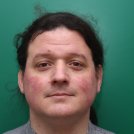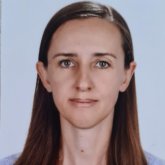PhD position on multimodal information fusion in dynamic environments
Imagine a swarm of drones equipped with all sorts of different sensors. They need to interact and coordinate but each drone is not aware of the complete picture. How do they share information? How is it combined? How can we infer the missing parts? In this research project, you will investigate the cutting edge of AI to enable a seamless information fusion across multiple moving sensors.
The Pervasive Systems research group at the University of Twente is looking for a highly motivated PhD candidate to perform research and development on integrating heterogeneous information from multiple sources.
This research project focuses on the effective control and data integration of drone swarms: combining heterogeneous information from different sources in a meaningful way is a complicated task. Each information source may contribute differently to the overall picture, with variations in data types, sampling times, and resolutions. Despite these differences, a consistent and reliable result must be delivered to a human observer. When multiple drones explore an environment, they need to be controlled effectively as a group, and their sensed data must be combined regardless of each drone’s relative position in the swarm. Missing data must be inferred from past observations or by integrating other data sources.
This PhD project focuses, part of the large national STEADFAST project, and addresses two main challenges:
1. Information Fusion: Combining sensed data and state information from multiple drones in a consistent and resilient manner, even when faced with missing, mislabelled, or corrupted information.
2. Control Coordination: Managing the relative positions of drones within the swarm to ensure effective context awareness.
Information and application
Are you interested in this position? Please send your application via the 'Apply now' button below before January 6, 2025, and include:
- A cover letter (maximum 2 pages A4), emphasizing your specific interest, qualifications, motivations to apply for this position.
- A Curriculum Vitae, including a list of all courses attended and grades obtained, and, if applicable, a list of publications and references
- An IELTS-test, Internet TOEFL test (TOEFL-iBT), or a Cambridge CAE-C (CPE). Applicants with a non-Dutch qualification and who have not had secondary and tertiary education in English can only be admitted with an IELTS-test showing a total band score of at least 6.5, internet. TOEFL test (TOEFL-iBT) showing a score of at least 90, or a Cambridge CAE-C (CPE)
For more information regarding this position, you are welcome to contact (Alex Chiumento via the following email address: a.chiumento@utwente.nl.
The first round of interviews will be planned within 2 weeks after the closing of the vacancy.
About the organisation
The faculty of Electrical Engineering, Mathematics and Computer Science (EEMCS) uses mathematics, electronics and computer technology to contribute to the development of Information and Communication Technology (ICT). With ICT present in almost every device and product we use nowadays, we embrace our role as contributors to a broad range of societal activities and as pioneers of tomorrow's digital society. As part of a people-first tech university that aims to shape society, individuals and connections, our faculty works together intensively with industrial partners and researchers in the Netherlands and abroad, and conducts extensive research for external commissioning parties and funders. Our research has a high profile both in the Netherlands and internationally. It has been accommodated in three multidisciplinary UT research institutes: Mesa+ Institute, TechMed Centre and Digital Society Institute.




